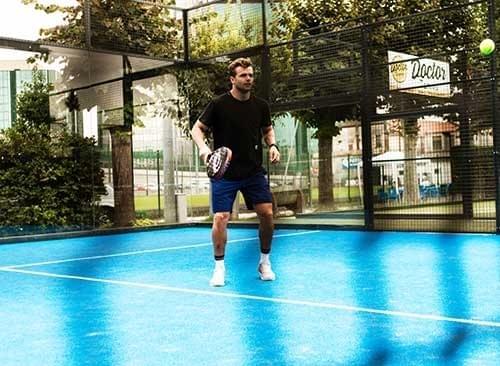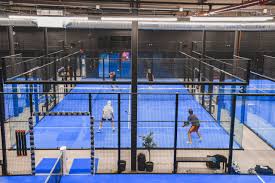In recent years, padel has captured the attention and enthusiasm of sports lovers worldwide, steadily building its presence beyond its origins in Spain and Latin America. One of the most promising territories for this booming sport is China. As the sport gains traction, understanding both the intricacies of establishing a padel ground and the growing opportunities in China becomes paramount for investors and enthusiasts alike.

China, a nation with a rich tradition in sports and vast experience in hosting international sporting events, represents fertile ground for introducing new sports like padel. The increasing demand for recreational activities among middle and upper-class demographics has opened an avenue for more diverse sporting experiences. Consequently, developing padel courts in China not only aligns with these recreational needs but also offers a business opportunity with profound growth potential.
The journey of constructing a padel court in China begins with understanding the specifications and requirements that define an excellent padel playing experience. Each padel court measures 10 meters by 20 meters enclosed with transparent walls, creating an arena that's compact yet dynamic. The choice of materials, including the surface and walls, significantly impacts the game. Utilization of artificial grass as a ground surface, along with high-quality tempered glass for walls, ensures durability and optimal ball bounce. In terms of lighting, LED systems are recommended for their energy efficiency and superior illumination qualities, pivotal during evening play sessions.

Sourcing these materials could initially pose a challenge, given China's relatively nascent experience with padel-specific infrastructure. However, connections with established European suppliers can bridge this gap effectively. Furthermore, collaborations with Spanish padel experts can infuse technical knowledge and craftsmanship into the projects, guaranteeing courts that meet international standards.
Beyond the physical construction, the success of a padel project in China also hinges on cultivating a community. Community engagement through regular events, local tournaments, and partnerships with schools and universities can spark widespread interest. This grassroots strategy, coupled with strategic marketing efforts targeting social media-savvy youth and health-conscious adults, drives participation and loyalty to the sport.
china padel ground
The strategic location is another cornerstone of establishing padel in China. Urban centers like Beijing, Shanghai, and Guangzhou are favorable due to their sizeable expatriate communities already acquainted with padel. Meanwhile, emerging cities with growing infrastructural capabilities also present opportunities for early adoption and market penetration.
Furthermore, aligning padel’s promotion with China's national health campaigns provides an authoritative edge. The Chinese government frequently endorses fitness and wellness initiatives, a synergy that padel, as a highly physical yet accessible sport, can leverage. Positioning padel as a complementary exercise to martial arts or as a family-friendly activity can enhance its attractiveness and adoptability among diverse audiences.
Effective SEO strategies are crucial to ensure that information about padel grounds in China reaches the maximum number of potential players and investors. Utilizing region-specific keywords, engaging in digital storytelling through blogs and video content, and maintaining an active social media presence help to build a strong online footprint. Also, partnerships with local influencers can amplify reach and influence, fostering trust among potential customers.
In conclusion, the venture of introducing and establishing padel courts in China encapsulates a blend of expert craftsmanship, strategic marketing, and community development. By addressing the technical nuances of court construction and employing a multi-layered engagement strategy, stakeholders can ensure the successful integration of padel into China's sporting landscape. This comprehensive approach, grounded in authenticity and authority, invites not only business success but also enriches the sporting culture within the nation.



